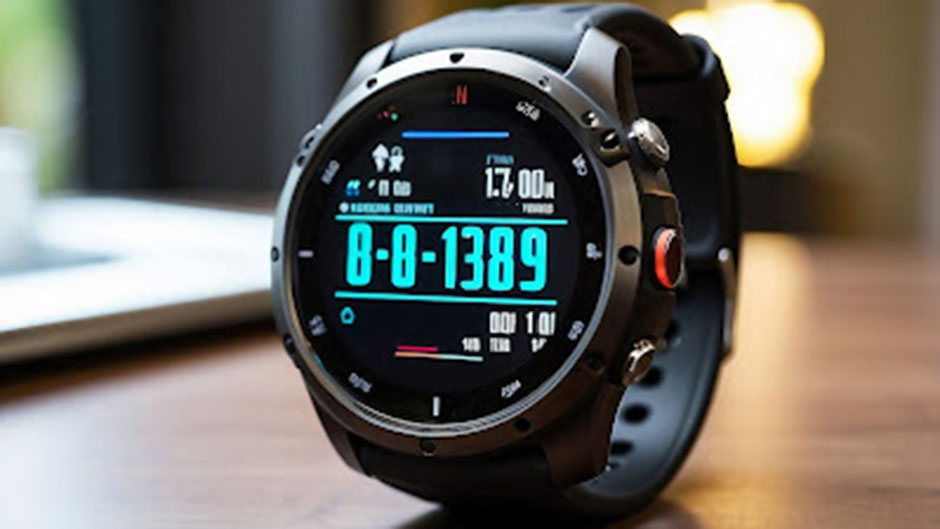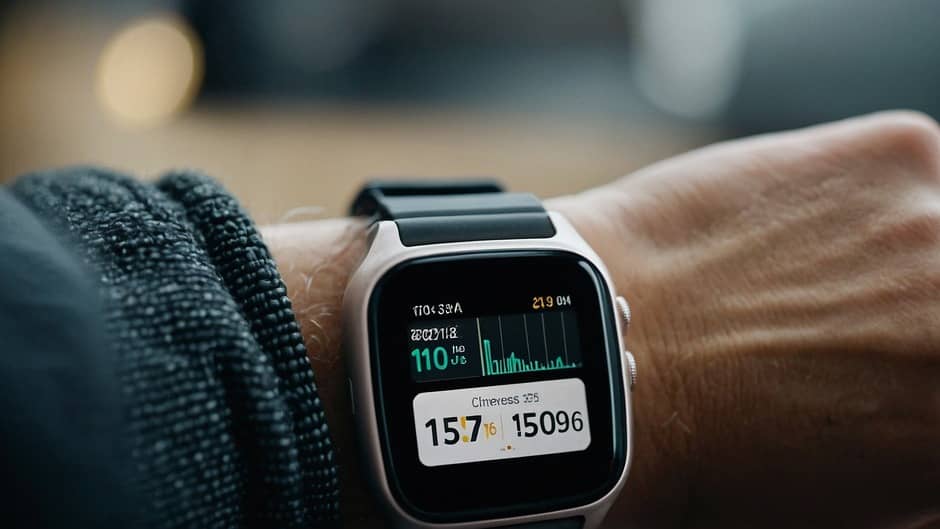Table of Contents
- How Accurate Are Fitness Trackers For Calories Burned?
- How Accurate Are Fitness Trackers?
- Are Fitness Watches Accurate For Heart Rate?
- Are Fitness Trackers Accurate For Blood Pressure?
- Opinion
- Fitness Tracker Accuracy Percentage
How Accurate Are Fitness Trackers For Calories Burned?
These days, calorie burning may be monitored with fitness trackers. When you run, the tracker tells you how many calories you burned, and you have a great attitude about it, isn’t that right?
The issue is that some of these figures are not reliable. The majority of wellness trackers employ sensors to identify development, and then they use mathematics to determine how many calories you’ve ingested.
However, estimate is the crucial word here. Depending on the model and brand, your unique physiology, and the type of movement you’re undertaking, the accuracy may vary significantly.
For example, a research that was published in the Journal of Personalized Medicine discovered that inaccuracy rates for calories burned on some fitness trackers might reach up to 27%.
What a large sum of money! You should not rely too heavily on these devices, even though they can provide you with an approximate approximation, if your goal is to regulate your weight or meet specific fitness objectives.
They are a guide, not the infallible word of God.
How Accurate Are Fitness Trackers?
Right now, let’s take a step back and take a general look at wellness monitors. Apart from calories, how accurate are these things generally?
In actuality, it changes according to the measurement. For example, steps are usually tracked rather accurately. Given that activity sensors represent a truly cutting-edge technological advancement, the majority of wellness trackers excel at counting your resources.
If you only want to track the number of steps you take each day, most trackers will do a respectable job of it. In any event, things become murkier when you start talking about more complex metrics, such rest after.
Trackers may utilize movement to detect whether you are awake or asleep, although this is not always accurate. Just by moving around, they can assume that they are awake or asleep.
They should not be used in place of a sleep study if you are concerned about the health of your sleep, even though they can give you an indication of your patterns.
Are Fitness Watches Accurate For Heart Rate?
We should talk about pulse now. This is one of the most crucial measures, particularly if you wish to exercise in particular heart rate ranges or monitor your cardiovascular health.
Fitness trackers usually use optical sensors to assess heart rate.
By shining a light through your skin, they can measure the variations in light absorption that occur as your blood flows through your veins. For the most part, these sensors work rather well for most users in most circumstances.
Wrist-wear trackers are largely accurate when used for light exercise and relaxation, according to a study published in Digital Health.
But when you start pushing yourself too hard, as in high-intensity interval training (HIIT) or any activity that needs a lot of wrist movement, accuracy might suffer.
This is because the development may cause the sensors to slow down, leading to less accurate readings. Thus, if you’re using your tracker to monitor your heart rate while working out, be hesitant to accept such readings.
They may not be exact, especially during intense workouts, but they are usually within a respectable range.
Are Fitness Trackers Accurate For Blood Pressure?
But pulse is a whole other story. This one might be challenging because blood pressure varies during the day based on various factors such as stress, exercise level, and even food.
Unlike fitness trackers, standard blood pressure readings require pumping air into an arm-wrapped cuff. Certain more modern health trackers promise to measure blood pressure by using sensors that detect variations in blood pressure.
Nevertheless, a major concern remains over the accuracy of these measurements.
The American Heart Association has been hesitant to suggest these devices for blood pressure monitoring because the technology is still in its infancy.
Most studies show that these trackers are not trustworthy enough to replace traditional blood pressure cuffs, even though they might give you a broad sense.
If you need to check your blood pressure on a frequent basis, particularly for medical reasons, a conventional blood pressure monitor is better.
Opinion
So, what are our next steps? Fitness trackers are excellent tools since they may help you set goals, stay motivated, and monitor your level of activity. But it’s important to remember that they’re not flawless.
When it comes to vital health indicators like blood pressure, heart rate during vigorous exercise, and calories burned, they can offer you a decent estimate, but they might not be 100% correct.
Instead of viewing your wellness tracker as a trustworthy source of truth, think of it as a kind companion on your journey to wellbeing.
Utilize the information it offers, but keep in mind that it is just one component of the picture. If you require precise estimates, especially for medical purposes, it is always preferable to see a healthcare professional or use specialized equipment.
We’ve finished talking about fitness trackers! They’re an excellent tool for monitoring your activities, but like anything else, it’s important to recognize where they may end up.
Also Read – Does Exercise Prevent Heart Attacks? – How Do You Care For Someone After A Heart Attack? (2024)

Fitness Tracker Accuracy Percentage
Step Counting
Step monitoring is usually fairly accurate with fitness trackers.
Recent studies show that these gadgets have an accuracy of about 90% when counting steps. That truly is incredible! Accuracy, however, can differ between models and individuals.
Certain trackers could have problems precisely measuring your steps if you’re engaging in activities like riding a bicycle or hanging onto something with your hands.
Heart Rate Monitoring
These days, checking your pulse is a little more complicated. Fitness trackers employ optical sensors to measure the volume of blood flowing through your skin in order to calculate your heart rate.
Based on consistent activities such as walking or running, research shows that most fitness trackers measure heart rate with an accuracy of about 85%. However, accuracy may suffer if you move around a lot or engage in vigorous exercise.
If you’re looking for accurate pulse readings, especially when performing concentrated energy exercises, you should think about getting a chest tie pulse screen, which is typically more accurate.
Calorie Tracking
Tracking calories is where the tough part arises.
Fitness trackers measure your heart rate, activity level, and other variables to determine how many calories you burn based on personal information like age, weight, and height. There’s a catch, though: these estimations might be wildly inaccurate.
Studies show that there might be a 20% to 30% discrepancy between the calorie estimates provided by fitness trackers and the actual amount of calories burned.
Because of this, even while they provide a ballpark estimate, they may not always be accurate. If you are trying to manage your weight or track your caloric intake, it is better to use these figures as a guide rather than an exact figure.
Sleep Tracking
When it comes to sleep tracking, fitness trackers utilize a combination of motion sensors and heart rate monitoring to evaluate how well you are sleeping.
Recent research indicates that they are reasonably accurate at identifying sleep patterns, with an accuracy rate of between 80 and 85 percent.
They are able to distinguish between deep sleep and light sleep, but they might not always record every waking second if you are a frequent snorer.
Also Read – Best Natural Medicine For Dandruff – Ayurvedic Medicine For Dandruff Cure (2024)
Overall Accuracy
Given the current state of affairs, how accurate are wellness trackers overall?
Yes, it really depends on what you’re using them for.
When you’re just walking about, they do a pretty decent job of counting your steps and monitoring your heart rate, but when you’re working out hard and tracking calories, they may not be as accurate.
Remember that no fitness tracker is flawless.
You should use them to gain a rough picture of your activity levels and health metrics rather than using them as an exact measurement.
Read us on Medium.




